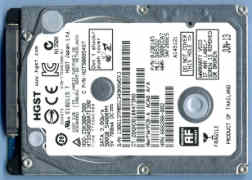Security and data recovery
You may be aware that there have been many cases recently of websites being hacked and user account details being compromised. ( recently Yahoo, dropbox, talktalk etc..) You can check if your email account details have been "pwned" here
https://haveibeenpwned.com/
Your identity and online security depend on maintaining your PC virus free, using secure passwords, and making sure your old equipment does not have recoverable information when it leaves your posession.
Passwords
Each site has different requirements for passwords. Your password ideally should include UPPER CASE, lower case letters, numbers and symbols. But some sites dont allow symbols, some require them. Generally the allowed symbols are the ones on the number keys of your keyboard, i.e. (depending on the language)
! " £ $ % ^ & * ( ) - +
its best to avoid a symbol at the beginning or end of your password.
Get a document with Johns best advice for managing passwords HERE
One way or another you need to keep a secure record of your password for each site.
Keep a secure record of important passwords
Password managers: There are password managers - indeed some are free. I don't choose to use these because I dont feel "in control". If the password manager software fails I'd lose my passwords for important sites. Also if I need to access sites from another PC, I can not access my passwords.
Store important passwords on a secure document: This is my chosen approach. I open a document in WORD or (better still) OPEN OFFICE / LIBRE OFFICE and list my passwords and log in details.
When my list is complete I save the document. But not yet - here is the trick. You need to ENCRYPT the file with a password. Its easy.
In WORD: Click the "Office" Button (top left of the window) and choose "Info" or "Prepare" depending on your version. Choose "Encrypt document" and add a SECURE, MEMORABLE password. Its the only one you will need to remember. Save as a WORD document.
In OPEN OFFICE or LIBRE OFFICE: its even easier. "Save as" and tick "save with password". Save as an ODF text document (.odt)
Again, use a SECURE, MEMORABLE password.
Now you can keep copies anywhere you like - even give them away - because without that password they can not be read. Keep a copy on your google drive and you can access it anywhere - and Open Office runs on Android as well as PC.
You can check the level of your password security here - but MAKE SURE the site address is correct before you enter a password.
https://howsecureismypassword.net/
Secure Disposal
Your data is kept on the hard drive(s), and needs to be kept safe, and erased if the drive is to leave your posession. Your backups also contain your personal data, so keep them safe and make sure they also are disposed securely if no longer needed.

For working systems which will continue in use:
Clicking "delete" only moves your file to the recycle bin. Emptying the recycle bin will hide the data from the average user; however its often still easily recoverable.
If your PC or laptop is leaving your control you need to be sure your personal data has been securely deleted; and you may wish to transfer it to your new PC. Its not straightforward, but I can do all that for you.
For working systems which will be re-purposed: (Windows can be reinstalled if required)
- Format the drive - quick but not secure.
- Use a secure deletion software to overwrite ALL the drive - secure but VERY slow - up to 24 hours. However this process does not require attendance.
For non-working systems:
Remove the hard drive, install or connect to a working system, and use a secure deletion software to overwrite ALL the drive. Even if the drive will be destroyed mechanically its best to do this first.
Mechanical processes: These rely on total destruction of the drive.
Sledgehammer: drive enclosures are very robust, this isn't recommended.
Open drive case, remove the media, and score with a scriber, drill holes, or scarify with emery paper. Data can not then be recovered except with equipment only available to security services.
Destroy disk with specialist equipment (shredder) - there are mobile services that do this. 100% secure.
Flash Memory
This should be securely deleted as described above. The important thing is to make sure that undeleted flash memory does not escape from your control. Flash memory is NOT reliable, and secure deletion by overwriting will often render it unusable, so mechanical destruction is probably the best option.
